Giro Sport Design has launched the new Eclipse Spherical helmet, claimed to be both the fastest road bike helmet and feature the most effective ventilation among aero lids on the market.
This is the helmet we first spotted in March 2021, on the heads of Groupama–FDJ and Canyon//SRAM riders.
The Eclipse has an aero-profiled design with 14 deep-chanelled vents. Factoring in Giro's 'Spherical Technology', with a two-piece shell and MIPS protection, safety is also central to the Eclipse's design, according to the brand.
The helmet is a good weight, too, at 275g (claimed weight, size medium), but you'll need deep pockets. The Giro Eclipse Spherical retails at £239.99 / €259.95 / $250 US / AU$429.99.
Designed for speed
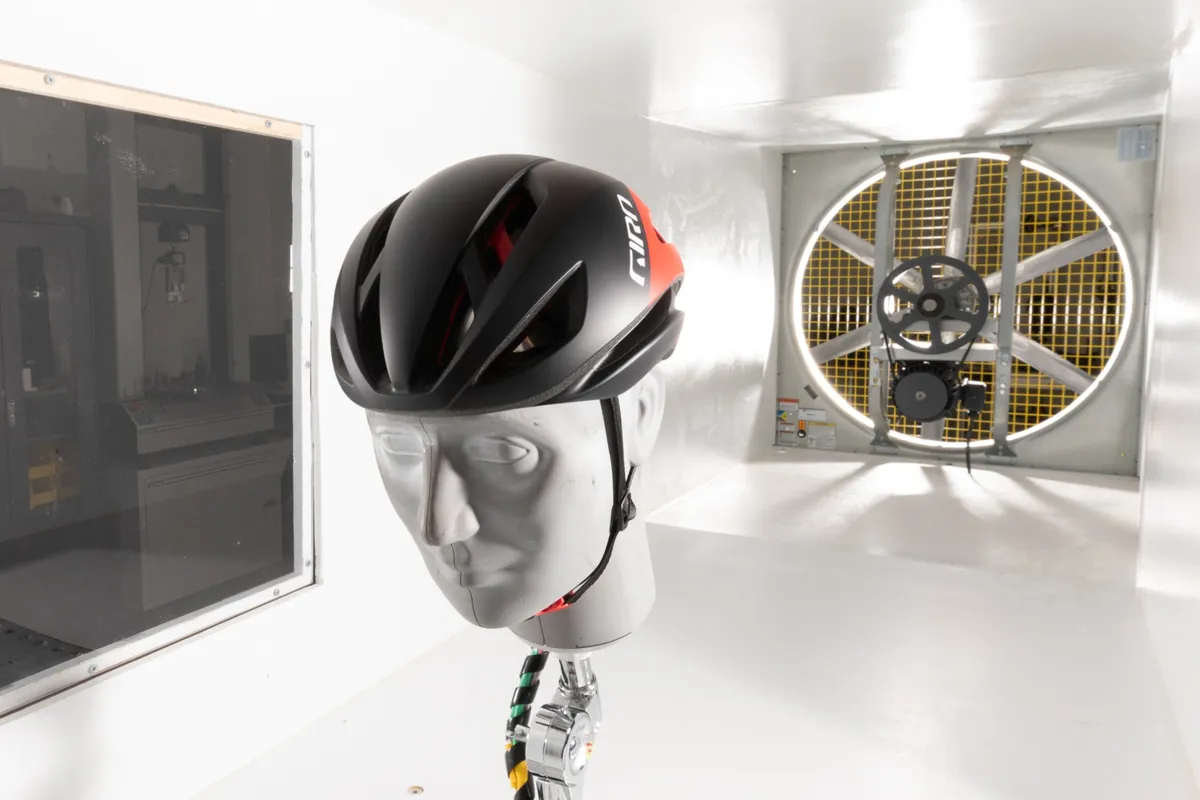
In-house wind tunnel testing during the Eclipse's development apparently allowed Giro's designers to optimise the shape for aerodynamic efficiency across a range of wind angles.
The resulting shape of the outer shell was then pitted against a range of helmets, including other offerings in the Giro range and competitor brands' aero road helmets. Giro hasn't stated which competitor helmets the Eclipse was tested against or how many.
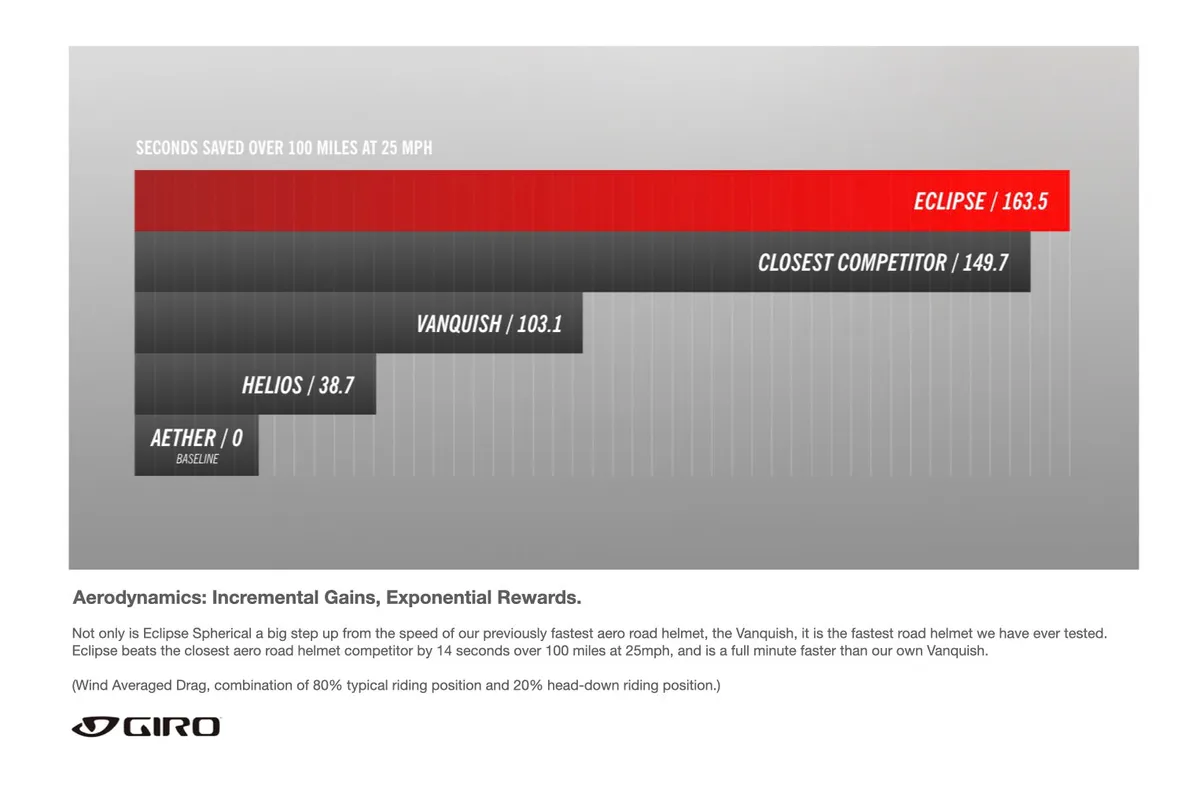
Giro claims a 14-second advantage over the closest anonymous competitor over a 100-mile course, ridden at 25mph / 40kmh, with 80 per cent in a "typical riding position" and 20 per cent in a "head-down riding position". This is using wind-averaged drag.
That may seem like a relatively small difference (and ambitious riding stats for your average cyclist), but the advantages do grow.
Giro claims the Eclipse is more than a minute faster than the company's existing aero helmet, the Vanquish, and 163.5 seconds faster than the base model, the lightweight Giro Aether.
Improved ventilation

Despite the Eclipse's sculpted design, aero isn't everything, according to Giro.
The brand has also pitched the Eclipse against rival helmets, and other lids in the Giro range, to measure how it compares in terms of cooling.
Using a contraption called "The Therminator", Giro measured the degree of cooling efficiency by cooling from 100 degrees Celcius in a wind speed of 25mph.
The Aether, which is optimised for air flow, leads the rankings with a cooling efficiency of 89.75 per cent.
The Eclipse comes close to that figure, according to Giro, dropping only half a percentage point in cooling efficiency.
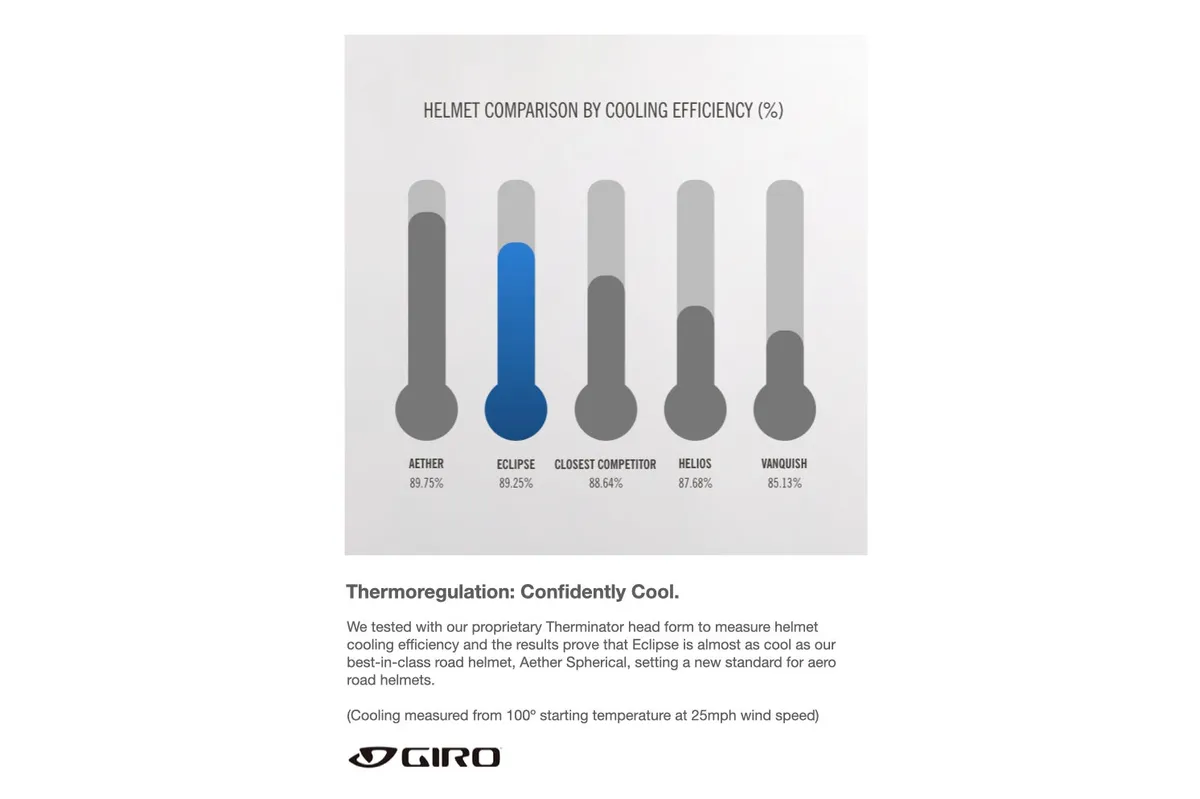
In comparison to rival helmets, Giro claims the closest rival measured at 88.64 per cent, providing a greater cooling effect than its Helios and Vanquish helmets, but less than the Eclipse and Aether.
Giro says the Eclipse achieves its cooling efficiency through 14 vents designed to pull air through the front of the helmet and over the head, not only providing ventilation but also contributing to the helmet's aerodynamic efficiency by reducing drag.
Safety credentials
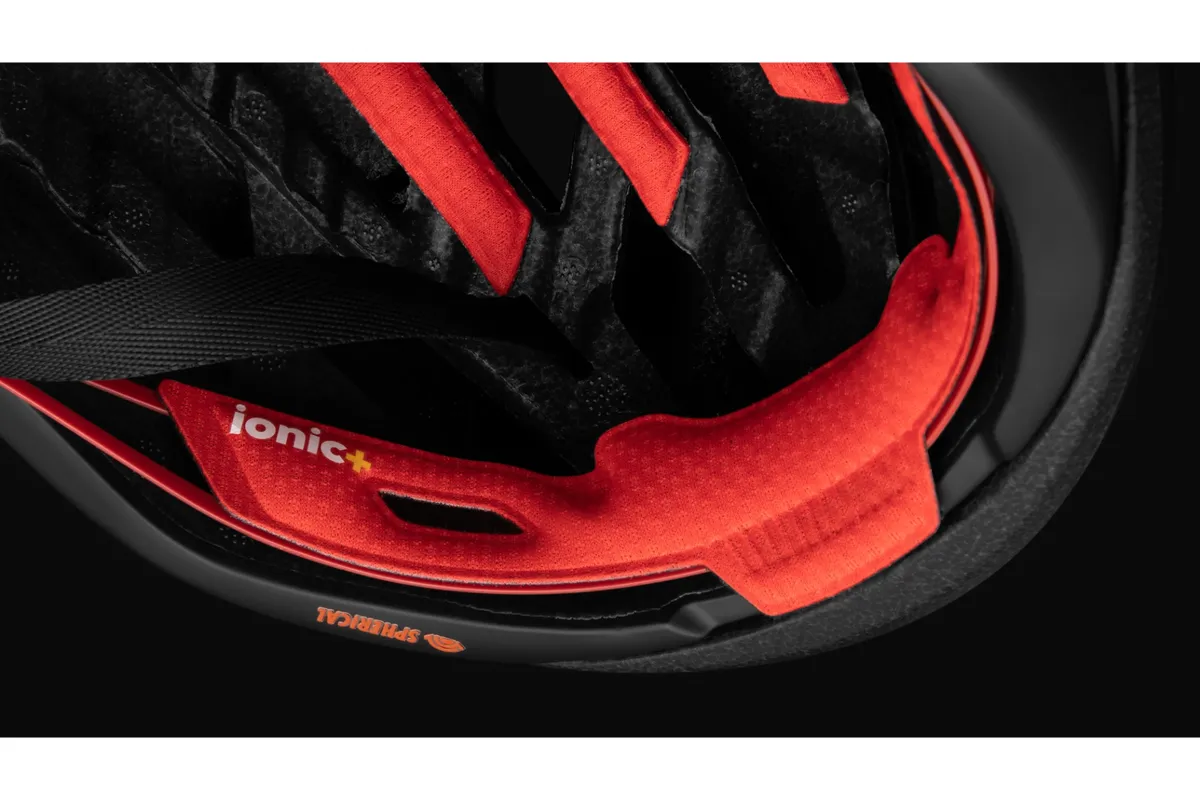
The Eclipse features Giro's 'Spherical Technology', first seen on the Aether helmet in 2018. The Spherical design uses two separate liners in a ball-and-socket construction to "help manage impact forces".
Like Giro's existing Spherical helmets, the design has been developed with MIPS, with a rotational liner also featuring on the Eclipse.
Giro's antimicrobial iconic+ pad inserts are said to improve comfort by wicking sweat. The helmet uses Giro's established Roc Loc 5 Air cradle system for adjustment.
Lightweight and understated
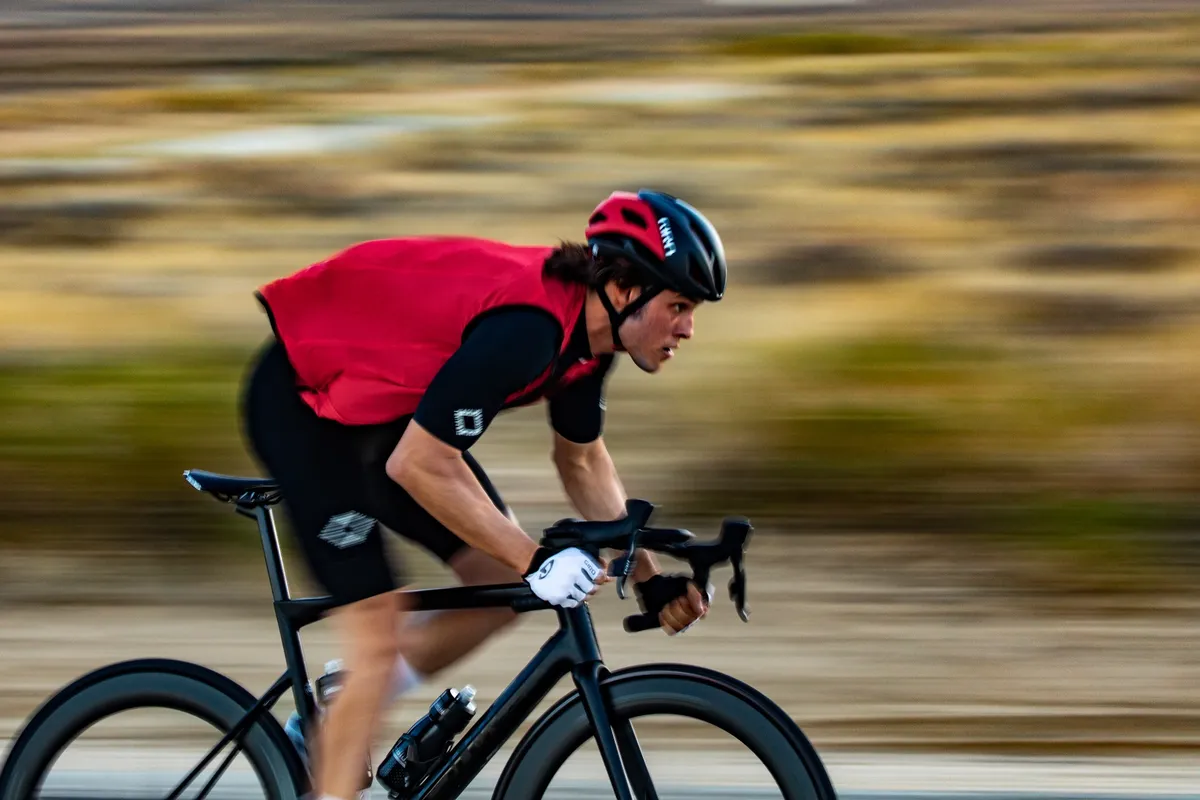
Weighing in at a claimed 275g for a size medium, the Giro Eclipse doesn't come with a hefty compromise on weight. It's comparable to other aero helmets, with the Specialized Evade coming in at 279g for a size large, the HJC Valeco at 272.5g and the MET Manta at 272.6g.
On first impressions, it's also one of the more subtly styled aero helmets available – certainly more subtle than the Giro Vanquish, with its integrated shield.
The Giro Eclipse Spherical helmet is available immediately in three sizes – 51-55cm, 55-59cm and 59-63cm – and five colours, including black, blue, white/silver, black/red and a dark grey with a fleck effect.
